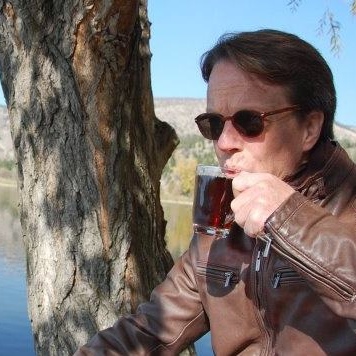An Acrostic For Professionalism – Jeffrey Doonan

“It is difficult, if not impossible, for those who do not perform to be good judges of the performance of others.”
–Aristotle, from ‘The Politics: Book VIII’
Having been asked to write a piece on the topic of Professionalism. I immediately said “yes”, thinking to myself: “I’ve been teaching for 25 years now, I know what it takes to do well in this profession.” Therein was my first mistake; profession and professional may be relatives but they are not twins. According to the big, ever-present Merriam -Webster dictionary on my desk, ‘profession’ was defined as “a calling requiring specialized knowledge and often long and intensive academic preparation.” The same dictionary told me that ‘professional’ meant not only “the conduct, aims or qualities that characterize or mark a profession or a professional” but also “the skills, good judgement and polite behavior that is expected from a person who is trained to do a job well.”
So, taking these definitions as my start and with the implied attributes as my guide, I came up with the following acrostic which defines how I view professionalism.
Principled and polite preparedness: An educator needs to be guided and guide by a set of principles. Whether these are the product of our past academic preparation, our formal education, or if they have been learned along the way, throughout the years on the job, we must constantly exercise them in a courteous and professional manner. We must always be prepared to teach, to learn, and to be ready to explain ‘why’ whenever our principled approach is questioned and to do so in a polite, dignified way.
Readiness, respect: A professional teacher must always be ready to work with others, even when those others may be hesitant or even unwilling to work with or for us. This readiness to work also includes the readiness to teach and learn as well, for each new class, possibly even each new student must be learned in order to be taught. Exhibiting this readiness to work with others in most instances springs from respect, both for and from those others.
Organizational skills or competencies: A committed, organized teacher is one who exhibits the competencies to rise to any number of challenges and to do the job to the best of his or her abilities. As a professional educator they are reliable, from the perspective of their fellow faculty and administration and even more importantly, from the perspective of their students. A teacher that is organized will realize that not all of the students in front of them will share the same levels of knowledge and interest in the class. That teacher must make use of all of his professional competencies to make sure that once the ‘knowledge is imparted’, once the information has been shared, that all of the students then have the necessary time, chance and opportunities to absorb and assimilate it.
Fairiness: Whether it be dealing with the administration, colleagues, parents or students, all must be dealt with, listened to and handled fairly and in accordance with the institution’s and your own principled guidelines. Even most people who may disagree with you will recognize fairness.
Engagement with education: While scholarship has to be accurate, education has to be interesting. It is the ability to stir an interest in all students that makes for a good educator because it is the interest stirred in a discussion or a class session that inspires a student to continue. Many times it is just an interesting comment or lesson that can have a lifelong impact on a student. The earlier definition mentioned that a profession required “specialized knowledge”. If one cannot impart that knowledge in an interesting and engaging manner, time in class may just be time wasted. One who truly educates does not say everything, he allows room for the students, the learners to think things out for themselves, for personal discovery. The professional educator knows that true learning leads to…
Self-Reliance: A professional will be aware of just how far his skills and knowledge will take him and just how far he should go. A teacher should know when to be an independent thinker, when to move away from ‘the coursebook’, and when to allow his students that independent, encouraging self-reliance.
“Nothing is at last sacred but the integrity of your own mind.”
–Ralph W. Emerson, from ‘Self-Reliance’
Supportive: On the student’s quest for knowledge they will need trust and courage to become an independent learner. A professional teacher will exhibit the “skill and good judgement that is expected” to allow them to do such. This may be one of the hardest points in the professional’s development: learning when it is time to step back and let the learning, that has traditionally been your domain, to blossom and grow. If we can develop our emotional intelligence so as to understand when the skills have been sufficiently learned, to trust our learners, they will also trust us as a form of support.
Innovative: Change happens and as professionals we need to be ready to adapt and be open to such inevitable developments. We need to know how to introduce the beneficial developments into our teaching so as to enhance the learning environment that we create in our classrooms. We also need to know how to maintain what has always worked for us in the face of all of these innovations. Change for the sake of change is not always best.
Open-minded: A professional should possess both honesty and integrity yet also have the ability to remain open-minded. It is my belief that an open-minded approach is the only way to “do our job well” when we as educators encounter so many dfferent people and situations.
Nurturing: Teachers need to nurture an interest in what they teach. We need to nurture the relationships we have with our students and colleagues. For many teachers the relationships they have with the community and with the local businesses are also extremely important and must be handled in a professional yet nurturing manner so as to keep things functioning smoothly and professionally.
Attitude and appearance: This goes well beyond the idea of “walk the walk and talk the talk.” A professional will exhibit “the conduct and aims or qualities” that make him a professional, it becomes second nature. While every culture and institution will have their own rules and codes of conduct, a professional image is much the same everywhere. A positive, professional attitude may not necessarily mean you are the most qualified, but it may suggest a sense of confidence and accountability, both good traits for all students to see and to develop.
Llifelong learning: On our way to becoming teachers we have spent many years learning, developing and honing many types of knowledge – and this must continue as a lifelong practice. In many places Professional Development is required and as a professional teacher this should be viewed more as an opportunity than as a requirement. It should be viewed as a chance to learn and to further develop. For if we as teachers lose that spark to learn and develop, how can we impart it to those who come to our classes each day?
Independent: Be it! Teach it! A community of independent individuals are the building blocks for a successful classroom. Independence does not mean that all may do whatever they want, it should mean that all have learned to be a member of a group, the class, without a great deal of external compulsion to comply. The Montessori Method.
A professional teacher should conduct himself, act and behave according to his status and personal beliefs. A professional teacher should also know how to impart this to and expect it from his students.
Student-oriented: Although this may sound cliche, like a topical buzzword, they are after all why the profession exists. They are why we pursue the knowledge we have and why we make such an effort to learn how to share it. The real profession that we are all “trained to do well” in is to help our students to learn. So if we do not really know them, their needs, wants, likes and dislikes, how can we possibly succeed?
As Alfred North Whitehead once said: “A merely well-informed man is the most useless bore on God’s earth. What we should aim at producing is a man who possesses both culture and expert knowledge in some special direction.” The direction that a professional teacher’s knowledge should follow is in the direction that will most benefit their student’s needs.
Maltitudes: We, as professional teachers, encounter a multitude of students each term, each year, and so we must possess a multitude of approaches and methods so as to be able to reach the majority of them. My “intensive academic preparation” and “the qualities that characterize and mark (me as) a professional person” have prepared me in a multitude of ways to deal with all of these challenges, and yet I learn.
So, as with beauty, perhaps professionalism is also much in the eye of the beholder. There are certain cultural, institutional and personal things that we can do, many mentioned above, to be seen as professionals in our chosen fields. My goal has always been to try to achieve the balance between what allows me to feel professional and for others to view me that way.
“No aspect of education is to be disparaged; it is the highest blessing bestowed on mankind, and it is the best of them on whom it is most fully bestowed.”
– Plato, from ‘The Republic’
Connect with iTDi Associates, Mentors, and Faculty by joining iTDi Community. Sign Up For A Free iTDi Account to create your profile and get immediate access to our social forums and trial lessons from our English For Teachers and Teacher Development courses.


that its a good lesson.
I loved this article! Well said. Well put!